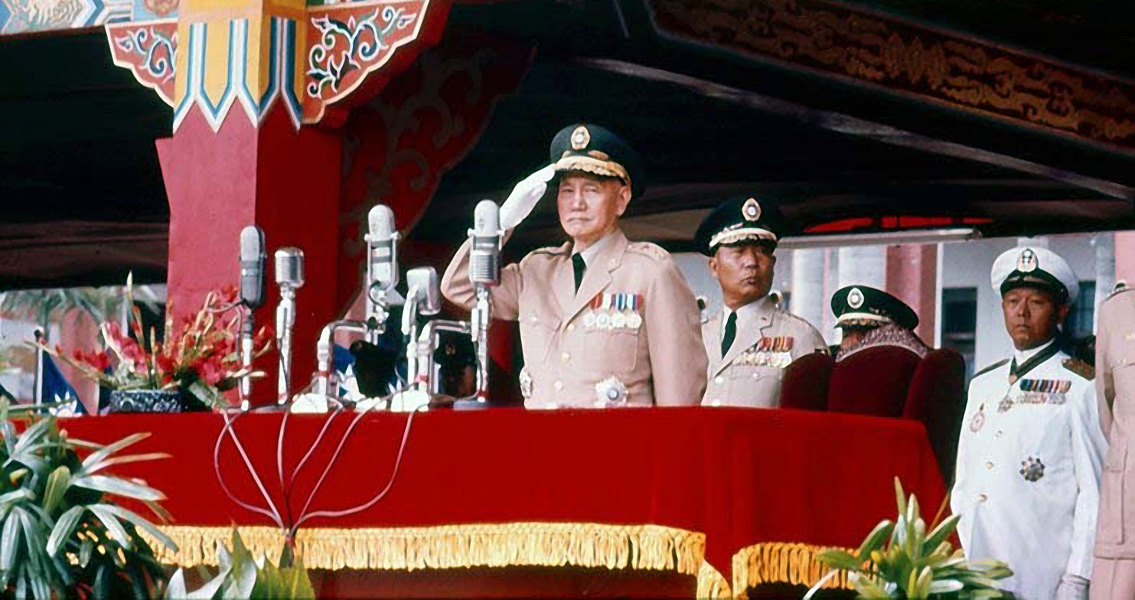<![CDATA[On 18th March 1950, the Nationalist Chinese Government on Taiwan launched a surprise attack on the People's Republic of China (PRC), invading the Chinese mainland and capturing the town of Sungmen. The event represented another step in the worsening diplomatic relations between the USA and the PRC, and highlighted the irreconcilable split between Chinese Communists and Chinese Nationalists. The Chinese Nationalist Party had originally formed as a revolutionary league aiming to overthrow the Chinese monarchy in the early part of the twentieth century. In 1912, following the formation of the Chinese Republic, the league became a political party, although it was swiftly dissolved following a coup d'etat in 1913. The party reformed but operated under more clandestine means, until the middle of the 1920s, when collaborations with the Soviet Union and the Chinese Communist Party saw it become much more significant. Chiang Kai-Shek gradually rose to the leadership of the party following the death of Sun Yat-sen in 1925, a rise to power which was matched by the Nationalist Party itself bringing much of China under its control. The party's rule was dictatorial and conservative, maintaining China's ancient feudal structure and fighting to suppress the country's Communist Party. The Japanese occupation of China during the late 1930s and 1940s brought an end to the conflict between Communism and Nationalism, at least temporarily, but Japan's eventual defeat was swiftly followed by China's descent into Civil War. The Communist Forces, led by Mao Zedong, secured a series of significant victories that forced the Nationalists into retreat. On December 8th 1949, the situation had become desperate, and the leaders of the Nationalist Party fled across the sea to Taiwan. They were followed by troops and politicians, and an estimated two million refugees. Chiang Kai-Shek and the Nationalist Party founded a government on Taiwan, naming it the Republic of China and effectively banning any opposition. Internationally, and especially for the United States, the situation represented a diplomatic nightmare. Although international observers had hoped the victory of Mao's Communist Party would allow diplomacy to resume between the USA and China, it had the opposite effect. President Truman's decision to recognise the Nationalist Government in Taiwan led to Mao breaking off all relations with the USA, a situation which would persist until 1979. The attack on the 18th March had been preceded by a propaganda campaign from Chiang Kai-Shek. He had long held that Mao's government was a Soviet puppet, and organised a series of aerial raids to drop leaflets on the Chinese mainland which stated his intention to return to China and remove Mao. The attack itself included thousands of nationalist soldiers from Taiwan. Battles on the mainland lasted for several weeks, but ultimately the nationalist forces failed to make any significant inroads, and were forced to once again retreat to Taiwan. Although the event itself had very little chance of toppling Mao's government, it had ramifications internationally. American officials failed to denounce the attempted invasion, and in some instances even supported the Nationalist's actions. It started a war of words between the PRC and USA, and even led to (unproved) accusations that the USA had actually initiated the attack. It might have only been 1950, but the event set a portent for the complex politics of international relations in the Cold War. No American troops were involved in the Nationalist attack on China, but it highlighted how American foreign policy was becoming increasingly fixated on Asia. ]]>
Nationalists Invade The People's Republic of China
